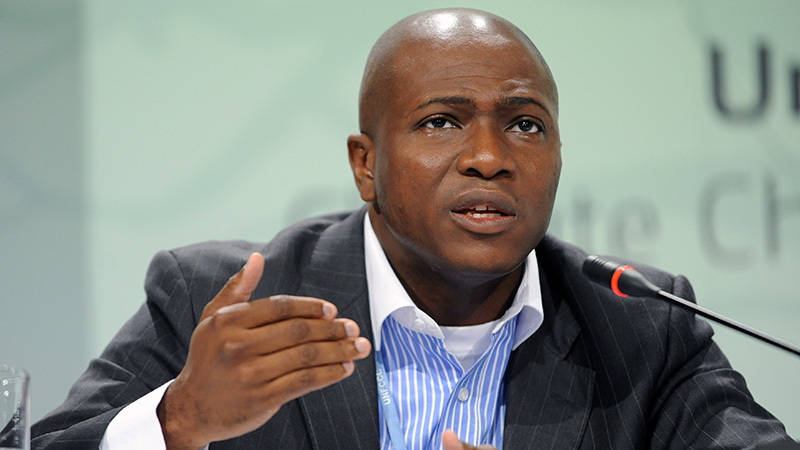On April 22nd of this year, the Paris Agreement received an unprecedented number of signatures and by September 61 countries had ratified it, including the two largest greenhouse gas emitters, China and the USA, and 13 of the LDCs.
This potential for rapid entry into force is sending a powerful political signal that governments from all regions and all levels of development recognise the need to take urgent action against climate change.
Nowhere is this early and ambitious action more vital than for LDCs. LDCs are acutely vulnerable to climate change: our countries and people face its worst impacts and we lack the means to effectively adapt or cope with its short and long-term effects.
Nonetheless, we are committed to doing our fair share to address climate change while building climate resilient and sustainable economies.
#Marrakech mail: sign up here for your daily #COP22 update https://t.co/DVM94d3ka1 #climate #UNFCCC pic.twitter.com/RvRAjOmDGn
— Climate Home News (@ClimateHome) November 2, 2016
But without essential, predictable and sustainable support from our developed country partners we have a low chance of achieving these goals or protecting our people from worsening climate related events.
The Paris Agreement takes full account of these and our other specific needs with provisions on financial, technological and capacity-building support.
Although – at the time of writing – the Agreement is days away from entering into force, most of the work to make the Agreement effective remains to be done.
First and foremost, we need to develop a robust ‘rulebook’ to flesh out and implement the provisions of the Agreement.
12 reports to read before #COP22 climate talks in Marrakech: https://t.co/j8jrJe4xYb pic.twitter.com/jCuLjurzQH
— Climate Home News (@ClimateHome) November 2, 2016
To meaningfully engage in these crucial rule-making processes, LDCs need continued financial and capacity-building support to be able to contribute to important decisions on transparency, accountability and the ‘ambition mechanism’ of the Agreement as a whole.
LDCs need this essential support to continue being champions of ambitious climate action and to maintain our strong, moral voice in the negotiations.
LDCs also recognise that the upcoming body of work not only relates to rule-making at the global level but also to a shift towards
domestic implementation of the Agreement.
This new phase of implementation presents its own set of challenges and opportunities for LDCs. The opportunities are clear: ambitious action on climate in our countries is essential to our development and poverty eradication priorities as well as to the achievement of many SDGs.
Africa files: In-depth reporting from climate change’s frontline
However, our success on each of these efforts hinges on receiving essential support and capacity-building to create climate-resilient infrastructure, develop responsive climate policies and strategies and implement effective legal and regulatory frameworks in our countries.
For example, LDCs should receive priority support for establishing renewable energy infrastructure and energy efficiency technologies, to minimise emissions while improving the quality of life for millions.
For LDCs, this support must not only be made available, but accessible, through channels that recognise and accommodate our special situations.
In Paris, the governments of the world showed that we share the common vision of leaving behind a safe, habitable planet for future generations. To make this a reality we need to follow through on the consensus we reached in Paris, and we need to start now.
This article was published in partnership with the Climate Development and Knowledge Network (CDKN). Tosi Mpanu Mpanu is lead negotiator for the Least Developed Countries (LDCs) at UN climate talks.
CDKN’s Negotiation Support programme seeks to level the playing field for developing country negotiators in international climate talks. It does so by ensuring developing country negotiators have the resources to participate in the international process and have the tools, skills and information to represent their interests alongside their more developed country counterparts.
